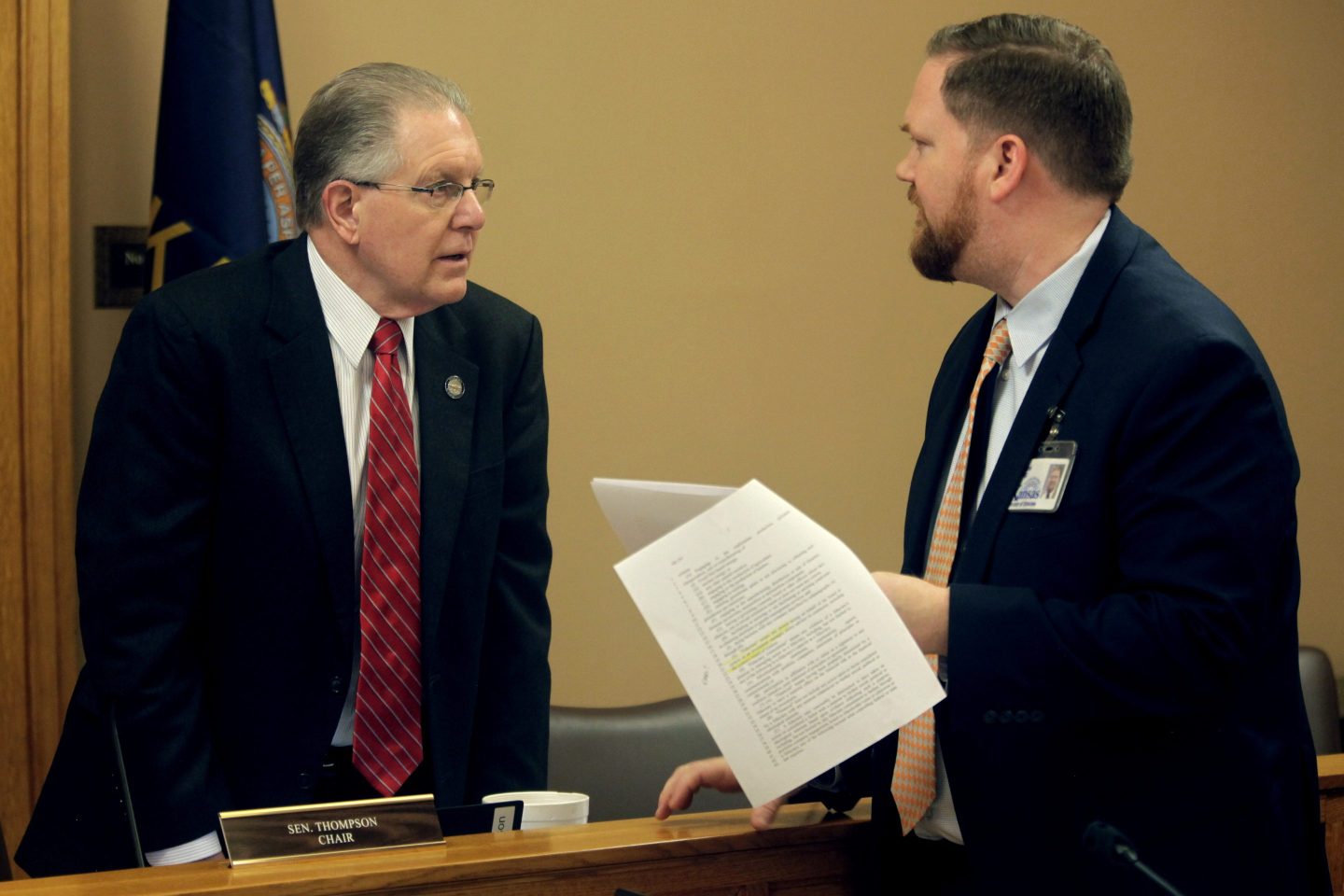Conservative Republicans who want to thwart socially and environmentally conscious investing are now being pushed to water down their proposals after backlash from powerful business groups and fears that state pension systems could see huge losses.
In both Kansas and Indiana, where the GOP has legislative supermajorities, bankers associations and state chambers of commerce criticized the strongest versions of anti-ESG legislation currently under consideration as anti-free market.
In Kansas, their opposition prompted a Senate committee’s chair to drop the toughest version of its bill — applying anti-ESG rules to firms handling private investments — before hearings began this week. The Kansas committee was slated to vote Thursday but could postpone action on a milder version of an anti-ESG bill after the head of the state pension system for teachers and government workers warned that it could see $3.6 billion in losses over 10 years if the bill were passed.
And last month, legislative researchers in Indiana reported that its pension system expected the first version of a House bill to cost the system $6.7 billion over 10 years, prompting lawmakers to rewrite it before the chamber passed it.
ESG stands for environmental, social and governance and those factors’ increased use in investing in recent years inspired GOP attempts to thwart it. Now, those efforts are riling groups long allied with Republicans in backing less government regulation.
“This is the underlying political nature of this,” said Bryan McGannon, acting CEO and managing director for US SIF: The Forum for Responsible and Sustainable Investment. “They really aren’t thinking about the consequences of the kind of the real world impacts of what this means in the financial system.”
About one-eighth of U.S. Assets being professionally managed, or $8.4 trillion, are being managed in line with ESG principles, according a report in December from US SIF, which promotes sustainable investing.
At least seven states, including Oklahoma, Texas and West Virginia, have enacted anti-ESG laws in the past two years. GOP Govs. Ron DeSantis of Florida and Greg Gianforte of Montana also have moved to ensure their states’ funds aren’t invested using ESG principles.
Critics of ESG contend that using investments to move the U.S. Away from fossil fuels, address gun violence or protect abortion rights sacrifices earnings for investors and undercuts the finances of public pensions.
“The agent who is representing or investing on behalf of the principal has a fiduciary duty to put the principal’s interest over the agent’s interest,” Kansas Attorney General Kris Kobach, a conservative Republican, told the state Senate committee this week. “That principle is such a such a core of American law.”
Anti-ESG efforts also draw support from companies and industries that feel under attack, such as oil and natural gas producers. During an Indiana House committee hearing last month, lawmakers heard a litany of complaints from businesses, including those in coal mining and firearms production, about difficulties they blame on corporate ESG policies.
“This is, again, a social agenda chasing something that they shouldn’t be chasing,” Kansas Senate committee Chair Mike Thompson, a Kansas City-area Republican who labels ESG investments as “potentially dangerous.”
Public pension funds are caught in the debate as big institutional investors: The Kansas system has $25 billion in assets and Indiana’s has $45 billion. NASRA, the association representing U.S. State pension fund administrators, opposes any move — including on either side of the ESG debate — away from making the security of pension fund assets “the paramount goal.”
In Kansas, Thompson scrambled Wednesday to set up behind-the-scenes talks to address the state pension system’s concerns.
Its executive director, Alan Conroy, testified that Kansas lawmakers’ current proposals are so broad that the state pension system couldn’t hire or retain an investment manager who did “anything in that ESG world.” The pension system would have to fire them all, hire new ones and likely settle for lower investment returns, he said.
Similar concerns played out in Indiana, but the pension system there backed off its figure for estimated losses after House members revised their bill.
Supporters say ESG isn’t about boycotting certain industries or companies but of doing a better job assessing future risks, such as costs from major accidents or pollution, or a diminishing local water supply. They argue that considering such factors is part of an investment manager’s obligation to get the best returns possible.
“The free market is trying to create a better risk-assessment framework, more comprehensive,” said Zack Pistora, a Sierra Club lobbyist in Kansas.
In Kansas, the bankers and credit union association and the state Chamber of Commerce went from opposing the tougher version of the anti-ESG legislation to being neutral on all or most of its milder cousin. In Indiana, the state chamber endorsed the more limited version.
Eric Stafford, a veteran Kansas Chamber of Commerce lobbyist, said free markets will make corrections if ESG investing provides lesser returns. And Alex Orel, a lobbyist for the Kansas Bankers Association, worried about a political “pendulum.”
He said: “You swing too far to the right, you swing back and it hits you right in the face.”
___
Davies reported from Indianapolis.
Coins2Day's CFO Daily newsletter is the must-read analysis every finance professional needs to get ahead. Sign up today.












